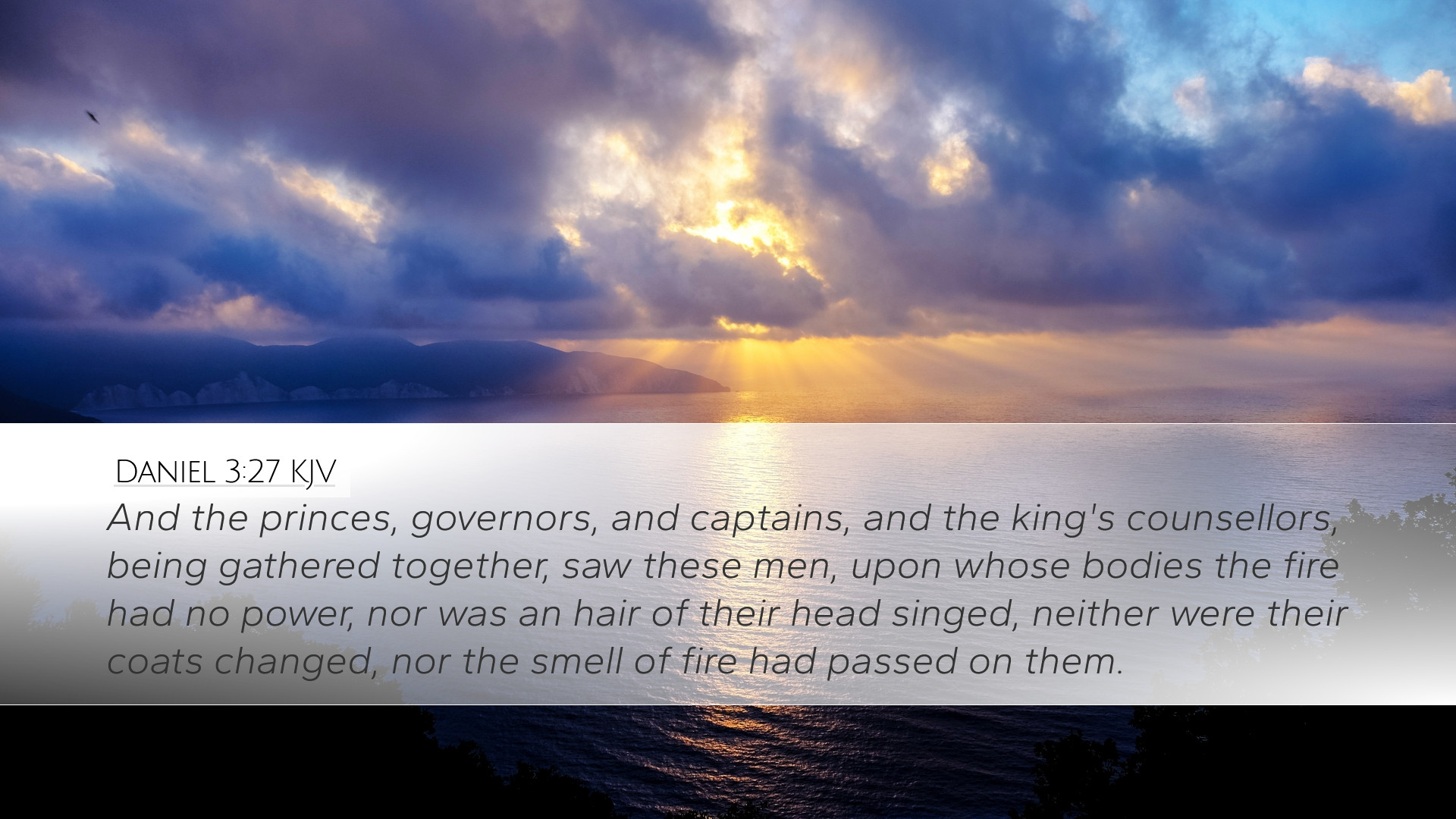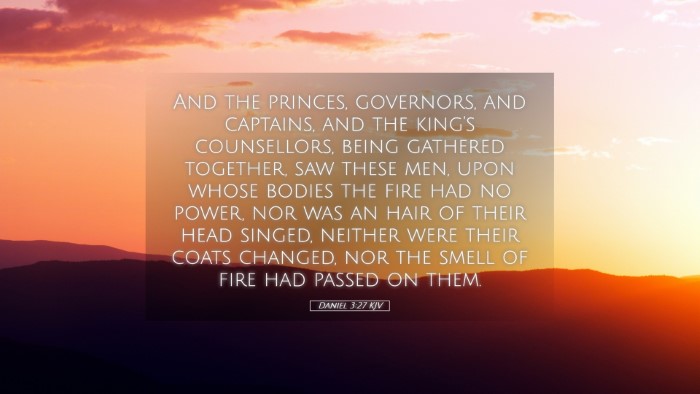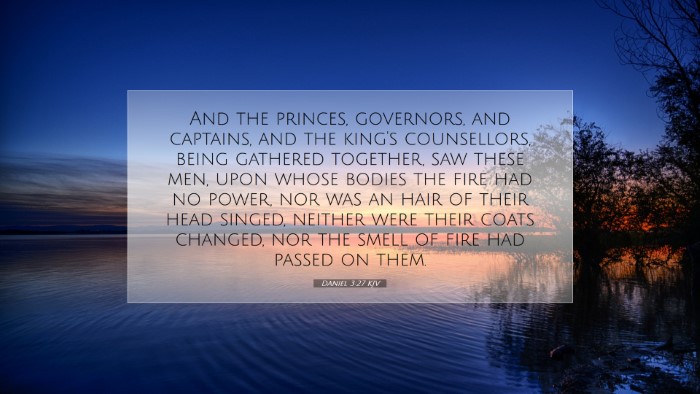Commentary on Daniel 3:27
Daniel 3:27 reveals a moment of divine intervention and the faithfulness of God to His people. In this passage, we witness a profound manifestation of God's power and protection amidst trial. The context surrounds the Babylonian King Nebuchadnezzar's fiery furnace, where three Hebrew men—Shadrach, Meshach, and Abednego—have been cast due to their refusal to worship the golden image.
Contextual Analysis
To fully appreciate Daniel 3:27, it's critical to understand the preceding events. The three young men stood firm in their faith, declaring they would not serve any image nor bow to false gods, even if it meant their lives (Daniel 3:16-18). Their unwavering commitment to God was rewarded by His miraculous deliverance.
Detailed Commentary from Matthew Henry
Matthew Henry highlights several key themes in this verse:
- Divine Protection: Henry emphasizes God's ability to preserve His servants even in the most dangerous situations. The Hebrew men's experience in the fire serves as a profound testimony to God's omnipotence.
- The Witness of the Guards: The observation by the king and the officials serves as a testimony to witnessing the miraculous in their presence, highlighting that God's protection is visible to all.
- Faith Under Trial: The author emphasizes that the true test of faith often requires facing the furnace of persecution and the way God honors those who stand steadfast in their convictions.
Insights from Albert Barnes
Albert Barnes provides additional insights into the implications of the deliverance experienced by Shadrach, Meshach, and Abednego:
- The Role of Faith: Barnes stresses the importance of faith in enduring trials. The miraculous deliverance resulted from their firm trust in God’s power to save them.
- Natural Law vs. Divine Intervention: He notes that the physical laws of nature were suspended; the fire did not consume them. This illustrates that God's will can override the natural order when it aligns with His purposes.
- The Impact of God’s Miracles: The resultant fear and awe of Nebuchadnezzar following this miracle demonstrates the impact of divine acts upon human authority and the recognition of God’s supremacy among nations.
Reflections from Adam Clarke
Adam Clarke's commentary introduces a more detailed observation regarding the particulars of the passage:
- Physical and Spiritual Deliverance: Clarke discusses the dual nature of deliverance—physical freedom from the flames and spiritual liberation from idolatry, emphasizing that true deliverance comes from God alone.
- The Significance of the Fourth Man: He reflects on the appearance of the fourth figure in the fire, often interpreted as a Christophany or a pre-incarnate appearance of Christ, signifying God's presence and companionship in suffering.
- Moral and Theological Implications: Clarke urges readers to consider the moral obligations that emerge from witnessing God's interventions. Those who witness such acts have a responsibility to testify to God's glory.
Theological Implications
Daniel 3:27 serves to cement several key theological principles that resonate deeply with faith communities:
- The Sovereignty of God: The passage underscores God's ultimate authority over earthly kings and the natural world, reaffirming His control and protection over His people.
- The Nature of True Worship: The refusal to bow to the golden image highlights the essence of authentic worship, illustrating that true discipleship often invites persecution yet is met with divine favor.
- The Reality of Spiritual Warfare: The fiery furnace can be seen as a metaphor for the trials believers face. The assurance that God walks with them fosters hope and courage amidst adversity.
- Community Witness: The public nature of the miracle establishes a community-wide recognition of God’s power, urging believers to be a witness to God's action in their lives.
Conclusion
In conclusion, Daniel 3:27 is a powerful testament to God's faithfulness against formidable odds. Through the insights of esteemed commentators like Matthew Henry, Albert Barnes, and Adam Clarke, we discern crucial truths about faith, divine deliverance, and the presence of God amidst our trials. This passage not only motivates pastors, students, and theologians to delve deeper into their understanding of God’s nature but also encourages believers to stand firm in their convictions, knowing He is with them in every fiery trial.


